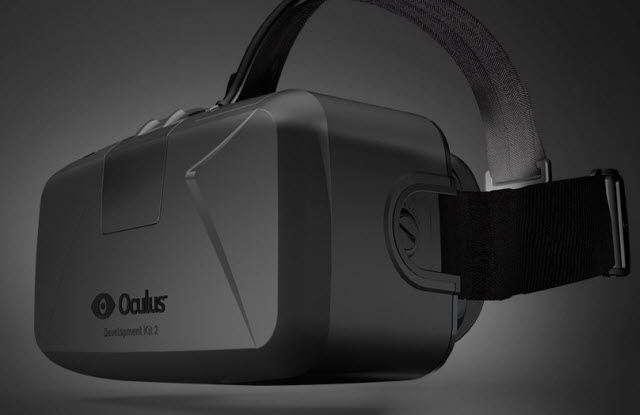
As we head into the Electronic Entertainment Expo next week, the biggest event in video gaming, you’re going to hear a lot about virtual reality. So far, the main contenders are the Facebook-purchased Oculus Rift, and Sony’s recently announced Project Morpheus. Both are headsets, with the Oculus in particular is moving ever closer to retail.
The Oculus has had a meteoric rise, first beginning as a Kickstarter campaign (which demolished its fundraising goals) and then it raked in tens of millions in funding from investors. That all culminated in Facebook’s $2B purchase of Oculus, and that’s when people really started talking about moving the technology beyond video games, despite the fact it has only just started existing in that space.
The long and short of it is that the Oculus Rift is being hailed as a kind of world-changing technology before its even out. The dangers of overhype are obvious, even for a piece of tech that has demonstrated to many it can execute its world-changing premise well. Nearly everyone who has used an Oculus VR headset to enter a virtual scenario or game has raved about the immersive experience, and it really does seem like tech is about to make a major leap into a sci-fi future.
The applications for gaming are obvious, and that’s originally why the tech was developed. Nearly any game that puts players in “first person” perspective can be tweaked to work wonderfully with the Oculus VR system. That includes typical shooters yet, but also exploration titles, racing games, starship fighters, and a whole host of other concepts.
That’s why Sony was quick to announce their own foray into VR gaming with Project Morpheus. They’re anticipating the world-changing potential of the Rift, and want to get in on the ground floor. And though these are the two major VR players at present, that could easily change as everyone chases after the same dream. I half expect Microsoft to announce their own VR tech at E3 this year, using the Kinect as an added sensor for further capabilities.
But again, all of this is without a consumer version of the Oculus or any VR product on the market yet. As such, it’s easy to imagine that this all could just be a giant bubble waiting to burst.
It’s important to look back at other video game/media tech that was supposed to change their entire landscape of their industry, but didn’t. The Wii was supposed to revolutionize the world with motion controls, yet its descendent, the Wii U, is struggling and Xbox recently cut ties with its motion-controlled Kinect for the most part. Every movie on earth was supposed to be a must-see in 3D by now, yet the technology is still viewed skeptically by the public, and few films since Avatar have really felt “worth it” in the (very expensive) format.
Could this be true of VR?
Possibly, as there are many issues standing in the way of VR being truly revolutionary. Though motion-sickness is something that’s constantly being worked on by the Oculus team, a number of people have suffered from it while using the Rift. For as much as they fine tune it, there will likely still be some cases, and it’s tough to mass market a piece of tech that some may not physically be able to use because of nausea.
The games themselves have limits as well. While first person titles may work well in VR, what about 3rd person games? Will VR games be as visually impressive and fully fleshed out as their non-VR counterparts? There’s a danger of “motion-control” syndrome here where something that’s a fun gimmick for a while may not turn into a truly revolutionary way to play games.
Then there are problems that could arise after mass adoption. If VR does become the norm, does society suffer if people are isolated in their little helmeted entertainment bubbles? It takes any and all physical interaction out of media, be it video games or possible VR movies and TV shows.
And then there’s the grand problem that sci-fi has predicted for so long. Could VR be so good at some point that it will cause mass addiction? Will people lose themselves in virtual worlds even more than they already do with traditional games? What effect does that have on them personally, and our society as a whole?
Still, from everything I’ve seen, I’m inclined to take the optimistic view of the Oculus Rift. I think it’s working really hard to overcome its challenges, and I do think it will be a huge seller once it finally does make it to stores. I worry more about the tech being too good and addicting at this point, than I do it becoming the next failed tech fad. I do think this is the real deal, and I can’t wait to see if I’m right.
[Photo via Oculus]
